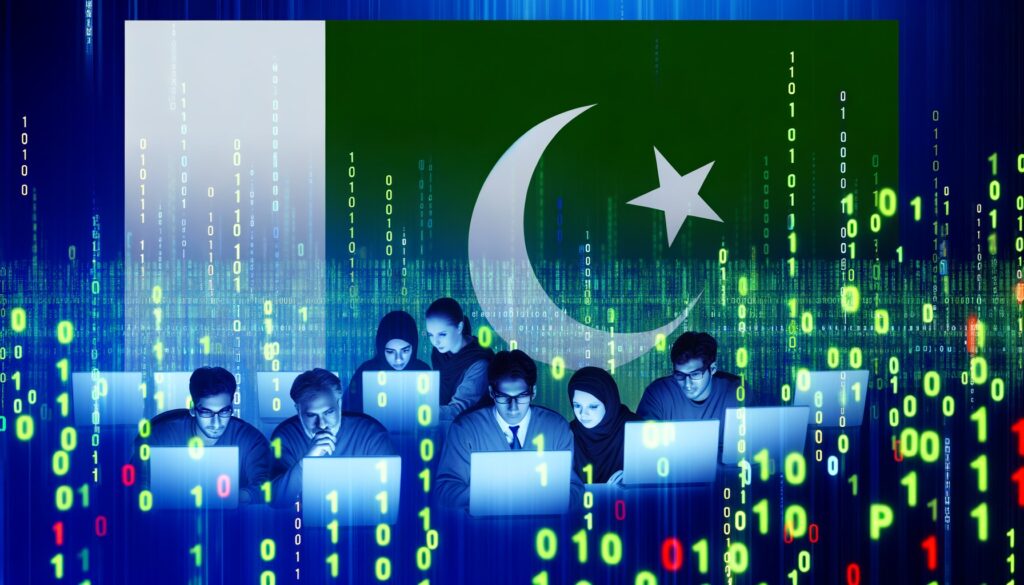PTBP Web Desk
Prime Minister Shehbaz Sharif has tasked the Ministry of Information Technology (MoIT) with preparing a comprehensive roadmap to help Pakistan surpass its ambitious $30 billion IT exports target in the coming years. The plan will include annual benchmarks, actionable strategies, and measurable indicators to track progress.
The directive came after the MoIT, under Minister Shaza Fatima Khawaja, exceeded its $3.8 billion IT export target in the last fiscal year. Chairing a high-level meeting on the initiatives of the Ministry of IT and the National Information Technology Board (NITB), Prime Minister Sharif highlighted that digitization remains one of the government’s top priorities to drive economic growth and align Pakistan’s economy with modern global standards.
“A complete digital ecosystem and supporting infrastructure is being developed to raise IT exports to $30 billion,” Sharif said. He stressed that achieving this goal requires global competitiveness, technological innovation, and strong governance frameworks.
The prime minister also ordered a thorough restructuring of the NITB. He suggested that the government recruit leading private-sector professionals to bring expertise, efficiency, and innovation into the organisation.
The restructuring plan, already in progress, focuses on improving:
- User experience
- Infrastructure modernisation
- Service delivery mechanisms
- Cybersecurity capabilities
- Research and innovation output
- Workforce skill development
Currently, the NITB manages 179 websites, 31 mobile applications, 113 online portals, and 57 consultancy projects for various federal departments.
Officials informed the meeting that IT exports grew by 19% in fiscal year 2025. The number of freelancers increased by 91%, making Pakistan one of the fastest-growing freelance markets globally.
Under the National Incubation Center program, 386 startups received support, with 14 successfully entering international markets. Additionally, 40 e-Rozgaar centres were launched across 26 cities to help young professionals tap into digital economy opportunities.
Cybersecurity has been a key focus area. Four Pakistani teams ranked among the top 50 in the prestigious Black Hat MEA cybersecurity event. The year also saw investment agreements and MoUs worth $700 million signed to strengthen Pakistan’s technology sector.
The ministry reported that around 315,000 students received IT training in 2025, including 115,000 women. Specialised women-led training centres were set up nationwide, supporting 130 women-led startups. Cybersecurity training was also delivered to 2,200 federal officers and 3,000 students.
The federal government has also pushed forward e-governance reforms. The e-Office system is now implemented in 98% of federal departments, streamlining workflows and reducing paperwork.
In addition, the Pak-App has collected Rs 6.2 billion in taxes. A total of 51 new systems have been launched to improve public service delivery and administrative efficiency.
Pakistan’s telecom sector also experienced significant growth in the past year. 580,000 new users gained access to 4G services, bringing total telecom connections to over 200 million. Internet usage rose by 24%, driven by digital adoption in both urban and rural areas.
These advances in connectivity are expected to further boost Pakistan’s digital economy, enabling more people to participate in IT exports, freelancing, and online entrepreneurship.
Prime Minister Sharif’s directive reflects the government’s vision for a Digital Pakistan — a tech-driven economy capable of competing on the global stage. The planned roadmap will ensure that growth is sustainable, inclusive, and aligned with international standards.
By setting clear milestones, attracting private-sector talent, and investing in infrastructure and human capital, the government aims to transform Pakistan into a leading IT export hub.




